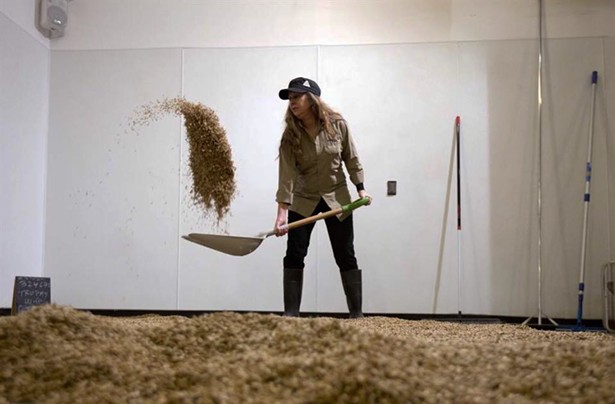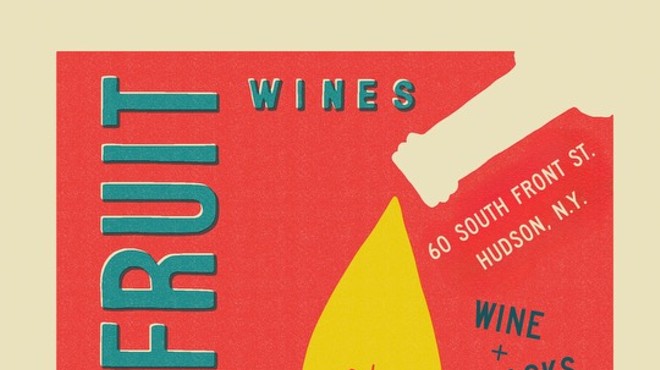Besides the creation of Farm Brewery License of 2013 and the Craft Act of 2014, one of the key (non-legislative) turning points in the Hudson Valley craft beverage surge took place in 2015, when husband and wife Dennis Nesel and Jeanette Spaeth opened Hudson Valley Malt, paving the way for truly local grain-to-glass production.
Spaeth and Nesel were dining with farmer friend Ken Migliorelli and enjoying hearing all about his progress in creating the From the Ground Brewery at Migliorelli Farms, when one particular detail struck them. “He said he wanted to grow the grains for the brewery but that he would have to ship them four hours each way to be malted,” Nesel says. “That’s crazy! Eight hours round-trip—that’s what you call a carbon footprint. Jeanette and I did our homework and we decided a local malt house was needed.”
Not just any malt house, either. Nesel, an advisor with Merrill Lynch, and Spaeth, an account executive, are Dutchess County natives versed in local ag culture. They knew how to give the Hudson Valley the malt house it truly needed and deserved. Thus the Germantown Beer Farm was born.
To hear Nesel describe the centuries-old craft of floor-malting is part poetry and part science lesson. “Wonderful grains and malts can be found in many places, but we’re all about beer from here,” he says. “We purchase raw grain from our farmers, steep it in tanks, and germinate it on the floor for five days. The protein transforms into enzymes, which interact with the starch to make sugar,” he says. “Maltose—It’s the energy that has to be freed to interact with the yeast in fermentation, that same energy that would let it push past the earth.”
Grains are spread six inches deep on the temperature-controlled floor in two-ton batches, kept hydrated, and raked and turned until they reach just the right point, then put in the kiln “to roast and toast to just the right flavor,” Nesel says. In addition to adding the characteristic nutty, carmel notes malted grains are known for, the toasting process stops the germination. “The process goes all the way back to the Mesopotamians,” Nessel says. “We’re coaxing the sugar out of the grains and getting them straight to the brewers for truly fresh, local beer.”
Grain farming and brewing were both strong in the Hudson Valley back in the day; Albany had eight breweries in the 1660s. In 1812, Matthew Vassar started brewing in the courthouse basement. The rise of midwestern agriculture, followed by Prohibition, put a temporary end to the party, but, like proteins lying dormant in barley seed, waiting to awaken, the grain terrain remained fallow. In the 21st century, boosted by research carried out at the Hudson Valley Farm Hub in Hurley and Stone House Farm in Hudson, and by farmer-brewers like Migliorelli, grain is coming back strong.
“We are connecting the public to the farmers through the brewers,” Nessel says. “We’re 90 minutes from 12 million people who realize there’s a big beautiful valley and state just north of them. The craft beverage movement is one of the biggest ways they’re helping our farmers. It’s built a really legitimate local beverage economy, and we love that.”
Nesel and Spaeth are enjoying their role in that revival, sharing in everything from the networking to the labor-intensive shoveling and hand-turning of the grains. In 2018, both were able to quit their day jobs and turn to malting full-time. Their 20 current partners include both local and city-based breweries like Sloop Brewing Co., Brooklyn Brewery, Plan Bee Farm Brewery, Sixpoint Brewery, Yard Owl, and Hudson Valley Distillers. See the full list of partners.
“What we do all day, every day is connect the craft beer lovers to the land around them,” says Nesel. “Educate the farmers about the brewers’ needs, educate the brewers about the grains. We’re all in this together, and here, Jeanette and I are in the middle of it. It’s a lot of hard work, but a very cool place to be—and enormously rewarding when you see the brewers and distillers succeed.”



















